Idle Time
A Prescription for
Trouble
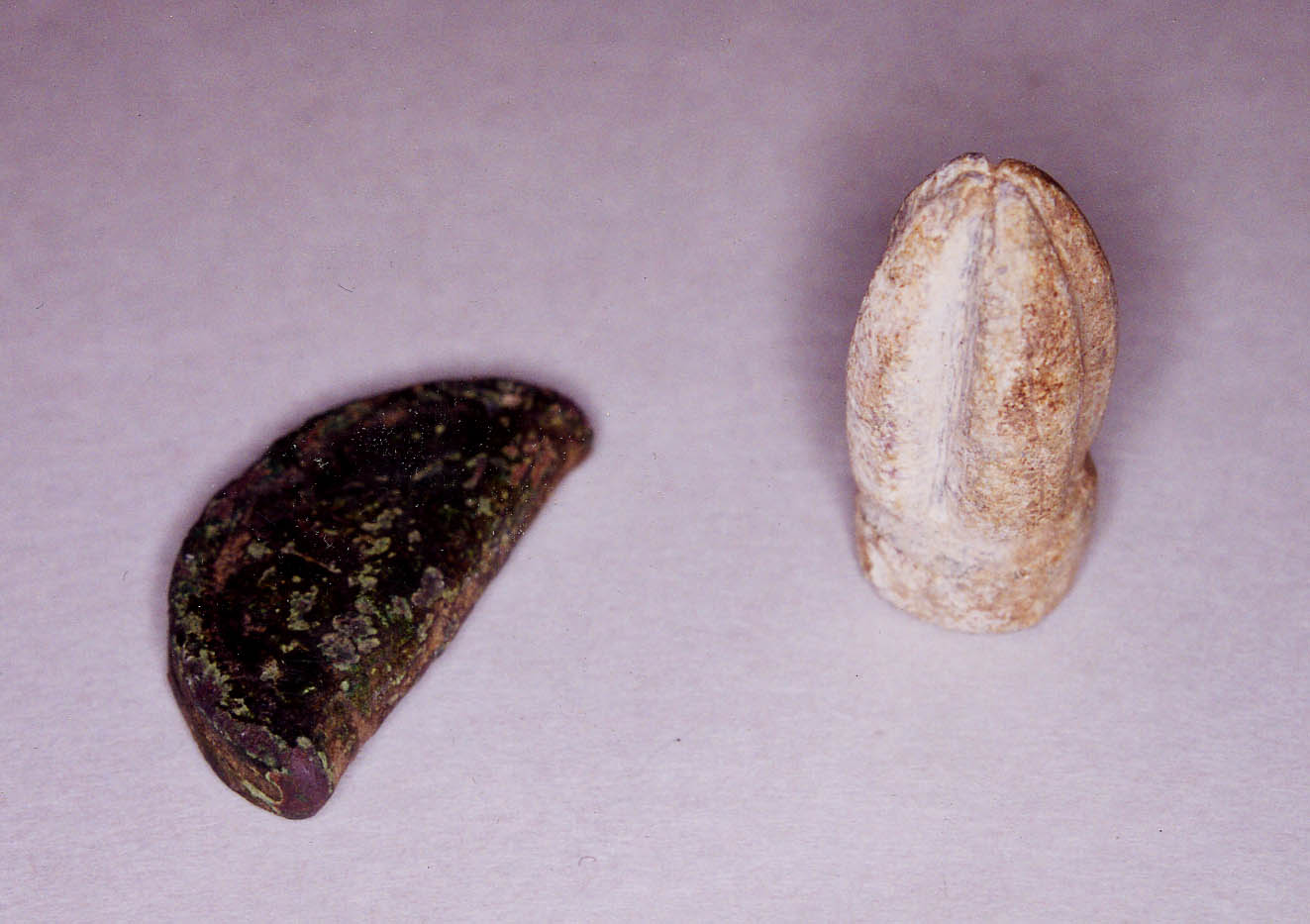
A bent sutler's token used for checkers
and a carved bullet used as a chess piece
When
they weren’t singing, members of the Washington Artillery during the War Between
the States spent their leisure
time playing with the same intensity that they exhibited while fighting in
battle. One cannoneer wrote of an episode of frolic by the 5th
Company in which a snow fight erupted involving “every man in our camp, both
black and white, Captain C. H. Slocomb lost two teeth, Lieut. Challeron [sic]
[got] a black eye,” and five privates came out with bloody noses. A similar snow
fight occurred between the men of companies one through four near Richmond,
Virginia. Frank Labrano wrote, “On February 22nd 1863 we had a very
heavy snow storm, the snow laid on the ground 15 inches deep. We had a snowball
fight. The 1st & 2nd Cos. against the 3rd & 4th
Cos. I received a very severe blow in the eye with an ice ball.”
Drinking
was a favorite past time for officers during idle times. William Miller Owen
recalled one episode of drinking during the early days of the war when supplies
were bountiful. One day in the winter of 1861, Roberdeau Wheat visited the
officers of the Washington Artillery at snow-laden Camp Hollins. He found them
huddled around a fireplace inside a small house. Wheat approached Walton and
stated that he had a treat for him strapped to his saddle. Walton’s servant went
to fetch the treat and returned with a pair of boots. Wheat then instructed all
of the officers to fill their glasses with snow. Although confused, they did so.
Then, to everyone’s surprise Wheat pulled from the boots two bottles of
champagne! “Pop went the corks, and the sparkling fluid was poured into the
snow-filled glasses. It was delicious, -the best champagne, we thought then, we
had ever tasted.”
Captain
Francis W. Dawson of Longstreet’s Division wrote about his recollections
concerning idle time of officers while in winter quarters. “The officers at our
head-quarters had a less innocent amusement than pitching snow-balls. The great
American game of poker was played nearly every night. One of the most successful
of the gamesters was Major Walton, who was a kinsman of General Longstreet. At
one sitting Walton won $2000 or more from Dr. Maury, who was one of the Surgeons
of the corps; and he caused much unfavorable comment by sending to Dr. Maury for
his winnings before the gentleman was out of bed in the morning. There was hard
drinking as well as high playing; and it was reported that at the close of one
debauch General Longstreet had played horse with one of the stronger officers of
his staff, who on all-fours carried Longstreet around and around the tent until
the pair of them rolled over on the ground together.”
Practical jokes by and
amongst the Washington Artillerymen abounded. Ned Phelps, a member of First
Company, owed his membership to the Washington Artillery to his antics. While a
member of Dreux’s Battalion in 1862, Phelps played a bold New Orleans-style joke
on his commander General John Magruder. During the Mardi Gras season members of
Dreux’s battalion decided to hold a Mardi Gras parade for the people of
Williamsburg, Virginia. Costumed Louisianians celebrated and paraded through the
streets, ending at the general’s headquarters. As a practical joke Phelps
dressed a fellow soldier (baby-faced Billy Campbell) as a girl and the two
strolled into Magruder’s office. Phelps introduced Campbell as a sister of one
of the battalion’s soldiers. Magruder took the “lady’s hand and began
entertaining Campbell with food, drink, and lively conversation.” Meanwhile
other members of the battalion went to the room above, tore apart a mattress and
shoved its feathers through the floor’s cracks, raining white “snow” upon the
trio below. Magruder, covered in feathers and totally confused, looked up to
hear the men of Dreux’s unit yell “Louisiana snowstorm!” Phelps was transferred
to the Washington Artillery soon afterward.
In
1862 soldiers of the Washington Artillery even threw a Mardi Gras party during
its campaign in Virginia – with young soldiers dolled up in female garb to make
up for a lack of women.
However, tempers could
rise during idle times, especially when liquor was added to fireside chats.
Discussions could turn into debates, and even personal feuds. Francis Dawson had
one such feud with James Walton. “Major Walton I had always disliked heartily,
and in one of our conversations he said that, when the Confederate States
enjoyed their own government, they did not intend to have any ‘damned
foreigners’ in the country. I asked him what he expected to become of men like
myself [a British subject fighting for the Confederacy], who had given up their
own country in order to render aid to the Confederacy. He made a flippant reply,
which I answered rather warmly, and he struck at me. I warded off the blow, and
slapped his face. The next morning I sent him a challenge [duel] by Captain
Ross. Walton, however, did not want a fight at this time, and offered to make an
ample apology in writing. A day or two passed, and as no apology came I sent
Ross to him again. … This brought Walton to terms, and he made the apology I
required.”
Many
times the men of the WA used their leisure time playing competitive games of
“Les Quartres” and the newly invented sport of baseball. Labrano cited the
victory of the 3rd Co. against the remaining battalion on October 13,
1863’s baseball game, winning by “7 runs & 3 Hobokens.”
Anything was fair game
to pass the time. When the battalion met up with their old friend and previous
fellow cannoneer James Dearing in 1863, now a colonel of cavalry, a “friendly”
horse race ensued between the personal horses of Washington Artillery’s John B.
Richardson and James Dearing. To the dismay of the artillery battalion,
Dearing’s horse won. However, they still celebrated after the race with a
tournament held by Dearing’s Battalion on the racecourse and a ball that
evening.
When horse racing,
singing, and acting weren’t available, the men of the WA would find any excuse
to pass their idle time. In November of 1863 they even partook in the mock trial
of one Mr. C E Caylat for stealing poultry. There is no doubt that the men of
the all of the companies played hard; but they fought even harder. Such was the
reputation of the men of the Washington Artillery.
The
following is a description of camp life during the Civil War by David Washington
Pipes of the Fourth Company, Washington Artillery:
“When I
reached my destination in Caroline County, Virginia, and joined the famous
organization, which had won its laurels in the Mexican War, The Battalion of
Washington Artillery of New Orleans, I was fairly well used up. I remember it
was about 4 p.m. when I reached camp. The battery was in winter quarters. Tents
were spread in order, and some of the boys had dug in, that is had dug a hole in
the ground about 12 x 14 built a chimney and covered the shack with boards they
made and had placed poles on them to hold boards on roof. The dirt had been
excavated to the depth of four feet, a plank was thrown around the center and
leading to the fireplace on either side, planks for seats had been placed. This
made a cozy and comfortable rest room and dining room. Pine knots were used for
lights and the boys played all kinds of games with cards for money, so-called,
and amusement.
As the sun was hiding in
the west and just as rays of day were fading, supper was announced and a regular
jubilee followed. Supper, Supper, Supper. You might have thought something good
was coming down the steps into the dugout. Morris the colored cook came; in one
hand he had a 5 gallon camp kettle with an iron ladle, in the other hand he had
seven large iron spoons and under his arm he had seven tin plates. I was good
and hungry, being the honored guest, I was helped first; Pile of hot mush on a
tin plate. A plate of mush was then handed to the fellow by my side by the name
of Johnny Lescene from Mobile, Alabama. He cooled his mush by spreading it on
side of his plate and ate it while I was waiting for all to be helped. Then I
said to Johnny, "Have you any butter to put on this mush?" He said "No. No
sugar. No, no gravy, no. No milk, no," and I said I did not care for the mush
and he said "Give it to me." and I did, before you could say scat that mush was
out of sight. But let me tell you right now I was not staying in that camp many
days when I would have been perfectly satisfied if I could have obtained enough
mush to appease my appetite.
As a new man I was presented with a new uniform, kind of a blue gray and a
misfit, the jacket had wooden buttons and the material was shoddy. I did not get
shoes as I had on a good pair; one pair was all I could wear. I had always
dressed neatly and my clothing had been tailor-made. Now I was rigged up with a
jacket - barely long enough to reach my pants and the pants were long and loose,
coming well over my shoes, but I had the satisfaction of feeling and knowing
that I was as well dressed as my companions, and no complaint was made.
I remember in camp during the months, drilling, answering roll calls,
playing cards, for fun playing chess and once going over to a children's supper
which the young ladies of the country gave to a select few. The distance was 7
miles over muddy roads, the walking was bad, and the charge was one-dollar
confederate money, cheap enough. We danced until well past midnight, left for
camp; the night was dark, the roads muddy but now was so drunk they could not
walk steady. For several days we were pretty well used up and I decided then and
there; no more 14 miles of night walking for chicken suppers - farewell to
midnight revelers.
Time hung heavily on our hands and a good many of the boys gambled for
money (so-called) that is, in Confederate money, which had but little value.
They would play day and night for this trash and the result was several of these
died soon after the war by injury to their system inflicted in this way, for
they had no comfort, no fires and only a blanket thrown around them for
protection from the wintry weathers. I promised my mother when I went to Oakland
College that I would never gamble, use profane language or drink intoxicating
liquors or in other words, get drunk and I have kept this promise. I am not a
tea toting for there are times and conditions stimulants used as medicines are
helpful; but this does not occur often."
David Washington Pipes, WA
Artifacts associated with the idle
times of the Washington Artillerists:
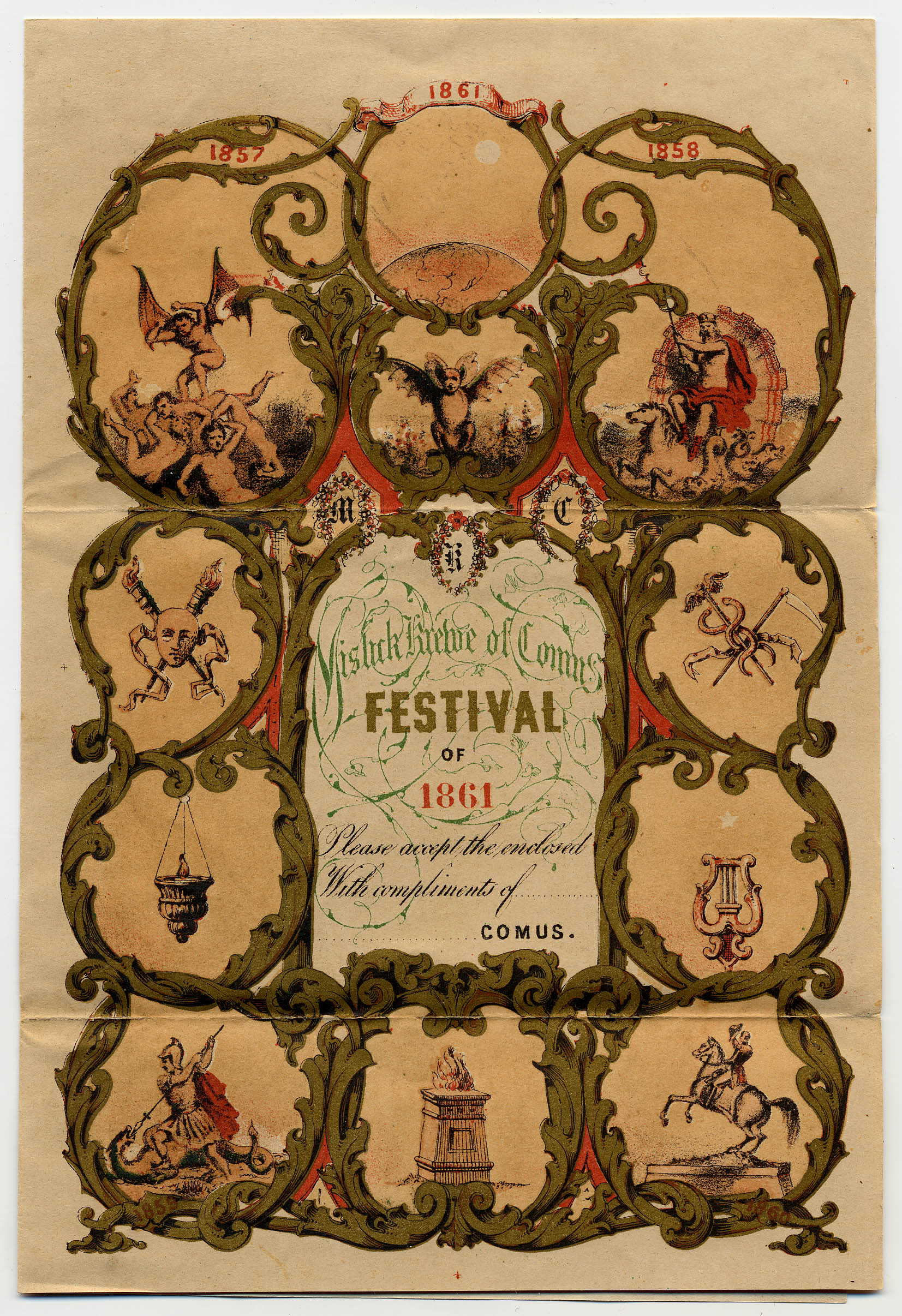
1861
invitation to Mystic Krewe of Comus Mardi Gras Ball
Even war
would not stop the partying in New Orleans.
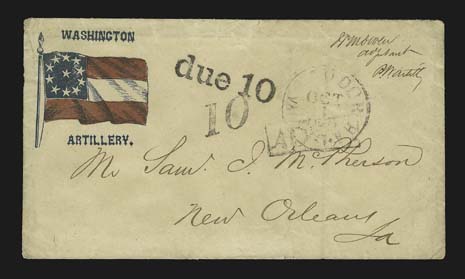
Early
War envelope of the Washington Artillery
Writing
home was a common past time for the soldier.
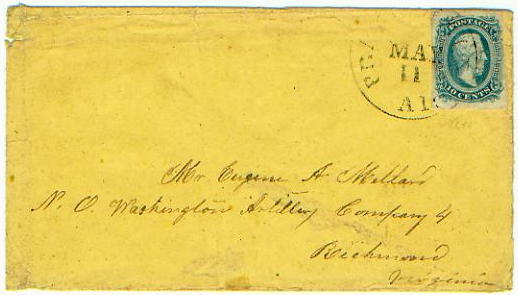
Envelope
addressed to Eugene A. Mallard of Fourth Co., Washington Artillery
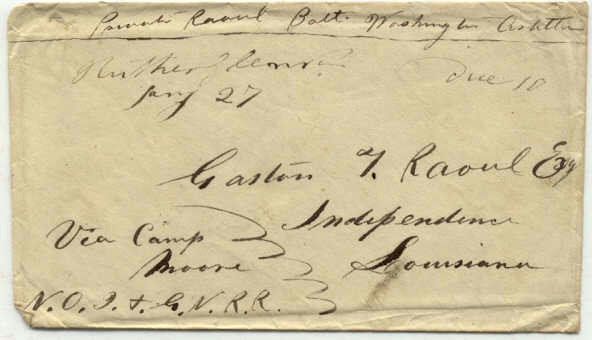
Envelope
from Private Raoul, Washington Artillery to his father back in Louisiana
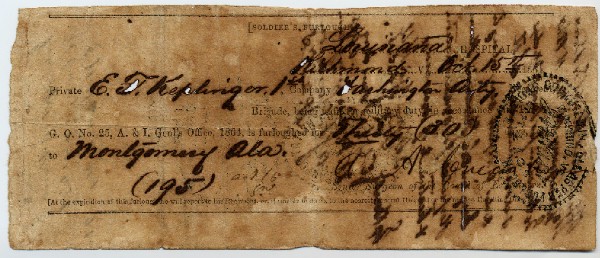
Medical
furlough for a Washington Artillerist E. F. Keplinger, First Company
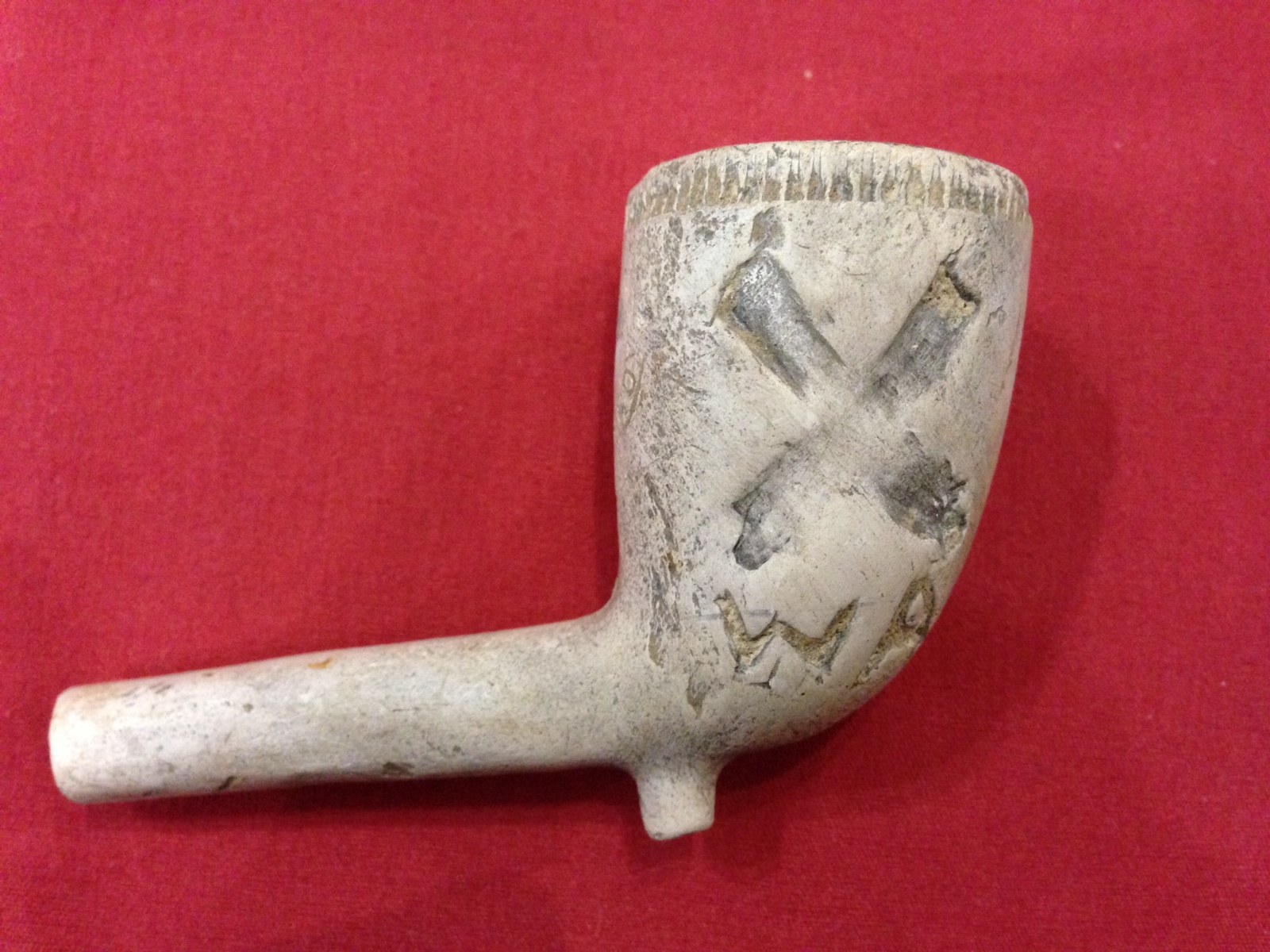
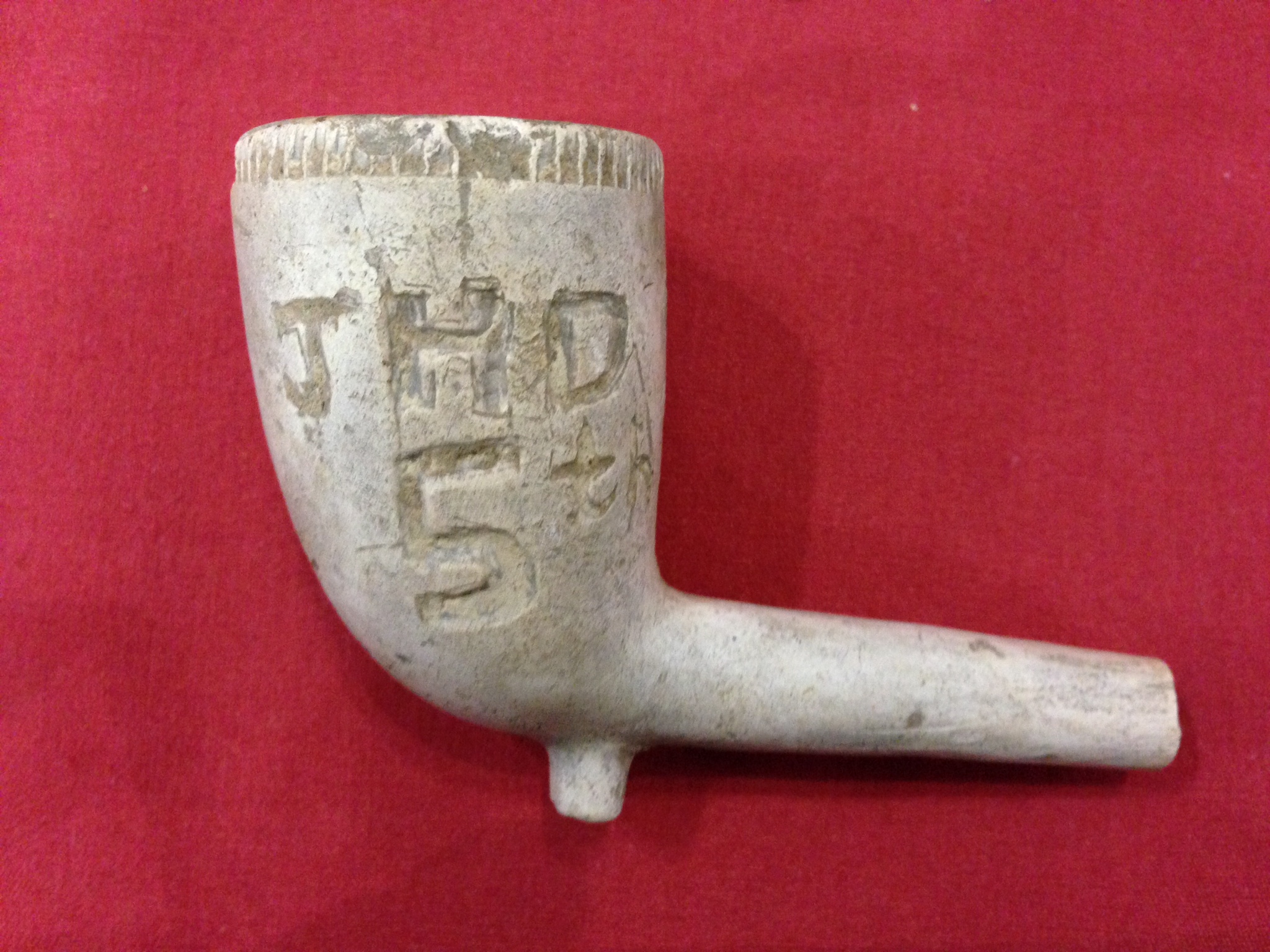
A TIME
to Fight - A Time to Relax
Pipe of
Joseph H. Duggan, 5th Co WA, recently dug at Shiloh,
with his
initials, Company and letters "WA" with crossed cannon carved into it.
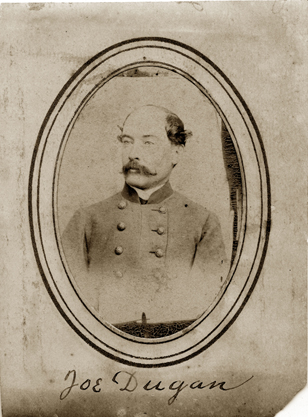
Joseph
H. Duggan, 5th Co WA
(image
ID misspelled above)
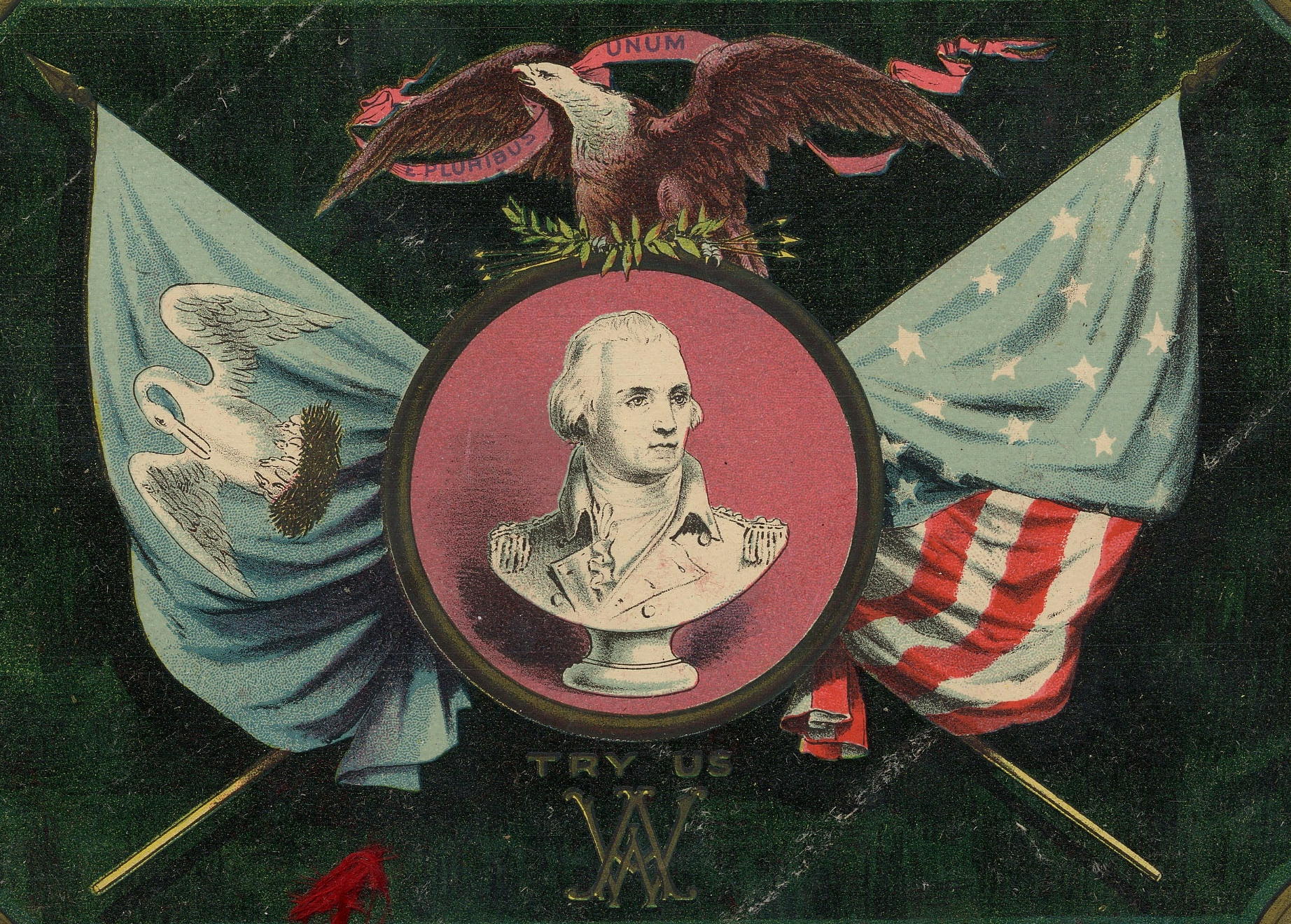
HOME